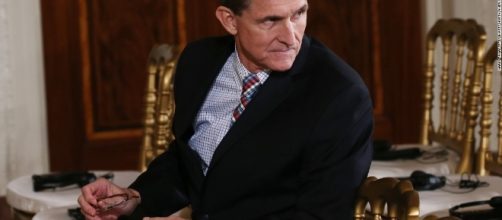Russian officials in their conversations during the presidential campaign in the US boasted that they had established a strong relationship with former Trump adviser Michael Flynn and believed that they could use him to influence Trump and his team. This is reported by #CNN with reference to the source.
It is noted that the officials claimed a lasting relationship with Flynn, who later became an adviser to the US president on "national security problems". The TV channel writes that such talks were worried by US intelligence officials, some of them, at their discretion, limited the amount of confidential information that they shared with him.
According to CNN sources, Russian officials considered the retired general to be their "ally". The interlocutors of the channel noted that the Russians could exaggerate their influence on Trump's team during such conversations.
Flynn resigned on February 13. The reason for his departure at the #White House was called the "loss of confidence" on the part of the president.
Back from Obama's desk
The CNN also reported that after the outgoing US President Barack Obama imposed sanctions on Russia in late 2016, due to "interference in the elections," Flynn contacted the Russian ambassador in Washington, Sergey Kislyak. He convinced the ambassador that the Trump administration would be favorable" to look at the backdrop of the situation if Russia did not take any response measures.
On December 30, Russian President Vladimir Putin said he was not going to expel American diplomats from the country.CNN also claims that Flynn promised Kislyak that the new presidential administration will "review" the sanctions imposed by Obama on Russia in 2014.
On May 19, Politico reported that Trump considers Flynn's dismissal a mistake. According to the sources of the publication, the US President already two days after the dismissal of his adviser admitted that he had to be left in office.
Obama warned Trump for Flynn
On May 8 CNN reported that Obama had warned his successor Trump from the appointment of Flynn as a national security adviser. In February, Trump stated that he had no information about Flynn's talks with Kislyak, and promised to study this issue.
Soon after, it became known about the resignation of Flynn.
On February 9, The Washington Post, referring to its own sources, wrote that Flynn was discussing with Kislyak the lifting of sanctions against the Russian Federation. According to The New York Times, the presidential adviser was interviewed by FBI agents. Flynn denied that the sanctions were the topic of his conversation with Kislyak.
On January 25, NBC, referring to the sources, reported that the FBI had conducted a wiretapping of the Russian ambassador and adviser to Trump, but could not find anything "unseemly" in their content. Kremlin spokesman Dmitry Peskov said that this information did not surprise Moscow.
Flynn and Kislyak communicated
Back in January, The Wall Street Journal reported that the intelligence services investigated Flynn's connections with representatives of the Russian authorities. In particular, Flynn's telephone calls to Russia's ambassador, Sergey Kislyak, investigated at the end of December 2016. It is known that on the day of imposing additional sanctions against the Kremlin, on December 29, 5 telephone conversations of the adviser and Kislyak were recorded.
Washington repeatedly accused Moscow of interfering in the election campaign in the United States. In the Kremlin, these accusations consistently rejected.


